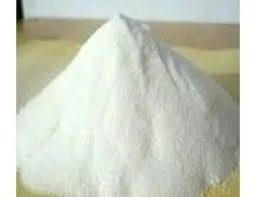
Novemba . 09, 2024 08:29 Back to list
Hydroxyethyl Cellulose Powder for High-Performance Thickening and Stabilizing Applications
Hydroxyethyl Cellulose Powder Properties, Applications, and Benefits
Hydroxyethyl cellulose (HEC) powder is a non-ionic, water-soluble polymer derived from cellulose, commonly used in various industrial, pharmaceutical, and consumer products due to its unique properties. This versatile compound is produced by the etherification of cellulose with ethylene oxide, resulting in a white, odorless, and tasteless powder that has gained significant attention across multiple sectors.
Properties of Hydroxyethyl Cellulose Powder
One of the most notable properties of HEC powder is its ability to dissolve in cold water, forming a clear and viscous solution. This hydrophilic nature makes it an excellent thickening agent, stabilizer, and emulsifier in numerous formulations. The viscosity of the solution can be modified by altering the concentration of HEC powder, allowing for a wide range of applications. Additionally, HEC exhibits pseudoplastic behavior, meaning that its viscosity decreases under shear stress—a desirable property in many applications where ease of application is vital.
Moreover, HEC powder is chemically stable, resistant to heat and microbial growth, and provides excellent film-forming ability, which contributes to its appeal as a binding and thickening agent. Its compatibility with various salts and a wide pH range further enhances its versatility in formulation chemistries.
Applications of Hydroxyethyl Cellulose Powder
HEC powder is extensively utilized in multiple industries, including pharmaceuticals, personal care products, food processing, and construction. In the pharmaceutical industry, it plays a crucial role as a thickening and stabilizing agent in suspensions, gels, and ointments. HEC enhances the texture and consistency of topical applications and significantly improves the overall usability of various drug formulations.
In personal care and cosmetics, HEC is used in creams, lotions, shampoos, and conditioners. Its ability to enhance the sensory feel of products, control viscosity, and stabilize emulsions makes it a popular ingredient in the formulation of various beauty products. Its film-forming capabilities also contribute to the performance of cosmetic products, providing a smoother application and increased wear-time.
hydroxyethyl cellulose powder

In the food industry, hydroxyethyl cellulose is used as a thickening and stabilizing agent in sauces, dressings, and dairy products
. Its contribution to texture and mouthfeel is particularly vital in low-fat and reduced-calorie products, where it helps mimic the creamy and thick textures typically provided by fat.Construction materials also benefit from HEC powder, especially in cement and plaster formulations. Its water-retaining properties enhance workability and adhesion while reducing cracking and shrinkage. These features make it a valuable component in the formulation of mortars, adhesives, and tile-setting compounds.
Benefits of Hydroxyethyl Cellulose Powder
The use of hydroxyethyl cellulose powder offers several benefits to manufacturers and consumers alike. Firstly, its versatility allows for customization in product formulations, enabling manufacturers to create tailor-made solutions that meet specific customer needs. Secondly, HEC is considered safe for use in food and cosmetics, as it is recognized as a non-toxic and biodegradable polymer.
Additionally, HEC's stabilizing and thickening effects can help improve the overall shelf life and performance of products, leading to increased customer satisfaction. Its resistance to heat and microbial growth further diminishes concerns regarding product integrity over time.
Moreover, with the increasing consumer demand for natural and environmentally friendly products, HEC provides an attractive ingredient option due to its plant-derived origins. As industries continue to explore sustainable alternatives, the use of HEC powder aligns well with the growing trend toward eco-friendly formulations.
Conclusion
Hydroxyethyl cellulose powder is an indispensable ingredient in numerous industries due to its exceptional properties and versatility. Its ability to act as a thickener, stabilizer, and emulsifier makes it ideal for use in pharmaceuticals, personal care products, food processing, and construction materials. With its favorable safety profile and environmentally friendly characteristics, HEC is poised to remain a popular choice in the formulation of innovative products. As research and technological advancements continue, the potential applications of HEC powder are likely to expand, paving the way for new and exciting developments in material science and formulation chemistry.
-
Unlocking the Benefits of HPMC Products: A Gateway to Versatile Applications
NewsAug.07,2025
-
Unleashing the Potential of HPMC Ashland: A Comprehensive Look
NewsAug.07,2025
-
Tile Bonding Cellulose: The Key to Superior Adhesion and Durability
NewsAug.07,2025
-
Hydroxypropyl Methylcellulose Powder: The Versatile Component in Modern Pharmaceuticals
NewsAug.07,2025
-
Hydroxyethyl Cellulose: The Versatile Solution for Various Industries
NewsAug.07,2025
-
Hydroxyethyl Cellulose (HEC): The Versatile Polymer for Various Applications
NewsAug.07,2025







